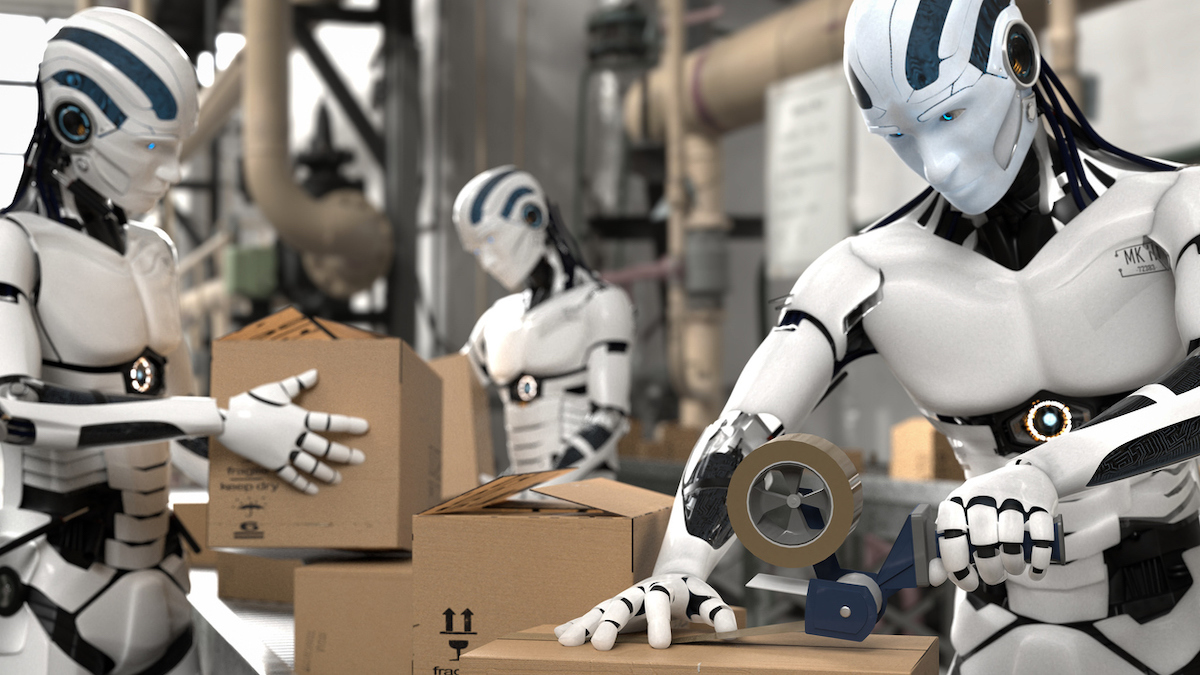Automation needs soft skills to realise its full potential
Sponsored by Forrester
Ever since Leonardo Da Vinci first sketched out his ideas for mechanical contraptions that mimicked the abilities of humans and animals, we’ve been fascinated with the idea of getting machines to do our work for us. And today, it’s machine learning that sits at the centre of sophisticated automation technologies. And it is the analysis of data for patterns that provides systems with the ability to automatically learn and improve, without the need for their programs to be constantly updated.
Jobs that comprise repetitive and routine processes are particularly prone to automation. This means unskilled jobs, plant and machine operation, and sales and customer services jobs are most at risk of automation. Yet contract lawyers looking for errors in commercial contracts, or radiologists analysing X-rays for signs of a tumour are as exposed to automation as the cashier at your supermarket or the bank teller at your local branch. It’s important to note, however, that it is mostly processes, rather than jobs or entire professions, that are at risk of automation.
In total, estimates suggest that between 15 to 50 per cent of jobs are at risk of automation. Automation levels in the European job market today are still fairly low. McKinsey states that European economies are operating at only 12 per cent of their digital potential. This will increase over the next decade, however, and with it the degree of automation. Given challenging labour market conditions in the wake of the coronavirus crisis, the notion of automation will continue to rattle the nerves of those employees most at risk from it.
Both business and HR leaders should care about automation
Europe’s economies have struggled with low productivity levels for many years. Business and HR leaders are looking closely at automation, and its promises of increased productivity. But a key policy challenge will be to maintain the balance of raising the productivity of high-skill workers through automation, whilst minimising the social fall-out of reduced demand for lower-skill and routine-intensive jobs. Retraining alone will not do the trick, as a cashier, customer service agent, or machine operator will not become a data scientist overnight.
That’s why an automation strategy needs to combine the opportunities of cost reductions with soft skills such as communication, organisation and planning capabilities, creative thinking, teamwork and empathy. Only in combination with these skills can automation unfold its full potential for greater employee experiences – and thus also greater customer satisfaction. If left unchecked, automation risks creating more dissatisfied employees and frustrated customers. But if it’s embedded in a broader and more comprehensive operational and cultural transformation initiative, automation can be beneficial for workers, customers, and businesses alike.
Align your employee experience and automation strategies
Boosting employee experience should be a North Star for business and HR leaders when designing their workplace automation strategy. The best business and HR leaders engage in open, regular, transparent, and inclusive communications with employees and employee representatives from the start of automation initiatives. This engagement must be continuous. It should involve all available communication channels, from town halls to internal fairs, from intranet communication to training offerings, emails and social media. Moreover, it needs to reflect individual incentives for driving automation.
The goal should be to evolve jobs that are most at risk of automation in a direction from which they benefit from it by freeing up time for more fulfilling and value-added activities. This way, automation allows businesses to explore new value propositions based on soft human skills. As part of this effort, all businesses need to place greater emphasis on learning and education as part of job development initiatives.
A positive culture of automation opens up enormous opportunities for an organisation to become more experimental and innovative. In those businesses that successfully introduce an employee-focused culture of automation, that aims to empower rather than diminish or abolish the role of the employee, workers are proactively looking to automate some of their work to free up their capacity for other activities that allows them to bring their human strengths to new value propositions.
Find out more about Forrester’s European research content on Automation and the Future of Technology here. By Forrester Analysts Dan Bieler and Bernhard Schaffrik

Business Reporter Team
You may also like
Related Articles
Most Viewed
Winston House, 3rd Floor, Units 306-309, 2-4 Dollis Park, London, N3 1HF
23-29 Hendon Lane, London, N3 1RT
020 8349 4363
© 2025, Lyonsdown Limited. Business Reporter® is a registered trademark of Lyonsdown Ltd. VAT registration number: 830519543





